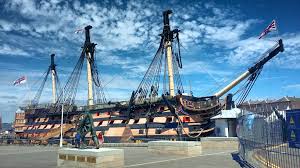Turkey, Austria trade barbs over Kurdish-Turkish clashes in Vienna
Such violence is rare in Vienna, which has a large ethnic Turkish minority. Turkey's Foreign Ministry strongly criticised Austria's handling of the protests, which it blamed on groups linked to militants of the outlawed Kurdistan Workers Party (PKK).

- Country:
- Austria
Austria and Turkey accused each other on Monday of responding inappropriately to clashes between Kurdish and Turkish protesters in Vienna last week, further straining relations.
On Wednesday, a brawl broke out after Turks heckled a Kurdish gathering in Vienna, police said. That was followed by clashes on Thursday and Friday between Turkish counter-protesters and about 300 people taking part in a Kurdish demonstration, according to a police count. Stones and fireworks were thrown. Such violence is rare in Vienna, which has a large ethnic Turkish minority.
Turkey's Foreign Ministry strongly criticised Austria's handling of the protests, which it blamed on groups linked to militants of the outlawed Kurdistan Workers Party (PKK). It accused Austrian security forces of meting out "harsh" treatment to the Turkish protesters.
"Austria's ambassador to Ankara will be invited to our ministry and informed of our concern," it said. Austria's conservative Chancellor Sebastian Kurz, a vocal critic of Turkish President Tayyip Erdogan, called on him to stop interfering.
Kurz told broadcaster Puls4 on Monday evening that he would continue his restrictive course on migration, otherwise Austria might have to deal with other, comparable imported conflicts. "We see in France where it can lead if integration policy goes wrong," Kurz said.
PKK militants have been waging an insurgency against the Turkish state since 1984 in a conflict that has claimed more than 40,000 lives. The PKK is designated a terrorist group by Turkey, the European Union and the United States. Earlier on Monday, Foreign Minister Alexander Schallenberg expressed to the Turkish ambassador "the clear expectation that he contribute to de-escalation rather than pouring fuel on the fire," Austria's Foreign Ministry said.
Austria said police intervention had prevented worse violence and pledged to find out who was behind the clashes. The police made 11 arrests and seven officers were injured in the clashes, the Interior Ministry said.
(This story has not been edited by Devdiscourse staff and is auto-generated from a syndicated feed.)










